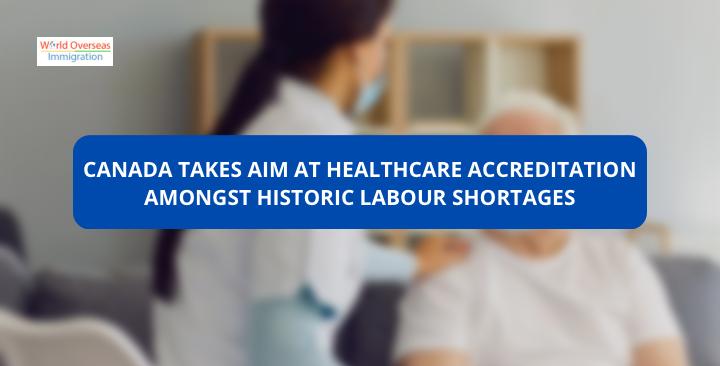[ad_1]
On December 5, 2024, Immigration Minister Sean Fraser announced a call for proposals to help Internationally Educated Healthcare Professionals (IEHPs) work in Canada’s healthcare sector.
At today’s press conference, Minister Fraser (on behalf of the Hon Carla Qualttro, Minister for Employment, Workforce Development, and Disability Inclusion) presented project proposals to help and enable IEHPs to gain skills, experience and local credentials announced a call for; So that their talent can be put to good use.
The proposals will be handled through the Foreign Credential Recognition Program (FCRP), a federal program that provides funding to governments and organizations to support foreign credential recognition in Canada. Minister Fraser announced a $90 million investment through the program for selected projects.
According to the declaration, a project is eligible if it can either:
- Lower barriers to foreign credential recognition for the IEHP by enhancing accreditation processes, streamlining accreditation phases, and expanding access to field practice; either
- Provide IEHPs with appropriate Canadian work experience for their preferred fields of employment, while also providing support services for participants, such as childcare and transportation costs, mentoring and coaching; either
- Facilitating labor mobility between Canadian jurisdictions for health care professionals and IEHPs in order to reduce structural and administrative barriers for health care professionals who wish to work in another jurisdiction.
In addition, eligible projects must be either:
- develop, test and implement credential recognition systems with an emphasis on reducing regulatory processes and/or harmonization of business standards to enhance international credential recognition and/or inter-provincial labor mobility; either
- Provide wage subsidies, job placement and counseling to IEHPs to assist them integrate into the Canadian labor market.
The proposals will be accepted till January 30, 2024. Successful projects can receive a minimum of $500,000 and a maximum of $10 million in funding.
Why is Canada doing this?
Canada is facing historic labor shortages in several industries, including seasonal agriculture, retail and tourism, and (most pressingly) healthcare.
Minister Fraser said in his address that 47% of skilled entrants with health educations from overseas were either unemployed or underemployed in non-health occupations that only required a high-school degree. In response, Canada has already removed permanent residency (PR) barriers for health workers – announcing earlier this year that physicians with temporary status in Canada would be eligible for economic immigration, despite being self-employed on paper. Will be
Immigrants working in Canada with a foreign degree were twice as likely to work in a job when they were more highly qualified than workers with a Canadian degree.
Based on this persistent over-qualification, changes to Canada’s certification system will be critical to properly address the labor shortage and better take advantage of the internationally trained skilled talent already in the country.
While the current scope of this project is focused on healthcare professionals, it is likely that the federal government will continue to explore accreditation innovations for other sectors, as more and more employers report a skills gap among their workforce.
© CIC Updates All Rights Reserved. Visit Worldoverseasimmigration.com to find your Canadian immigration options.
[ad_2]


